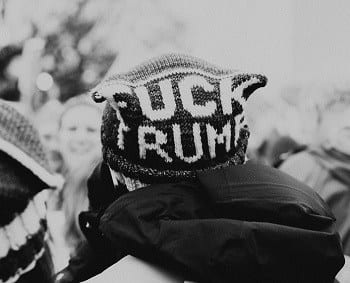While I was driving today, I caught a glimpse of a not too unfamiliar sight, a “Coexist” bumperstick. You’ve probably seen it before. In it, all the letters of “Coexist” are represented by a different symbol of a major religion, stating defiantly that we can all get along. All of our different groups can live harmoniously together if we so choose. We can co-exist.
I’ve always really disliked these bumperstickers.
Coexist! Is the best we can strive for? Is this really such an inspiring rally cry for progressives? Is the best we can do simply to tolerate one another? Are we doomed to always be defined by which religion we were born into and be inherently disconnected and separate from those who were born into a different one? Is this our vision for our more conscious future?
No. We can do so much better.
And we can start by stopping thinking of as separate from another. We can start by dispelling the belief that people from different religions or different nations or with different skin tones or rooting for a different sports team are so unalike one another that they are actually different entities that can at best co-exist side by side. We can start by acknowledging that these categories are arbitrary divisions we’ve placed on ourselves, figments of our own imagination. We can start by embracing that we are all fundamentally united in our shared humanity and have infinitely more in common than different from one another. Family. Friendship. Kindness. Community. Service.
But we can continue by also recognizing that our religions are one of the core aspects of our identities that keep us apart from one, that divide us into this group or that group. This is why those religious symbols, not national flags, are so prominent on the “Coexist” bumperstick. This is no mistake.
Yes, certainly, some of us unite as a community in our church or temple or mosque. Yes, this shared identity can be a powerful tool for connection. It’s is undeniable that religion has many positive effects on our society that we can and should maintain.
But it is equally undeniable that religion is far too often the root of disconnection, distrust, “othering” within our communities. It is far too often the basis of what divides “us” from “them”. It far too often creates the need for us to simply co-exist alongside one another, rather than truly be able to live in community with one another.
As tempted as I am, it would perhaps be too far to suggest that we would do away with religion entirely in our ideal future, as John Lennon yearned for in “Imagine.” But I don’t think it’d be too far to suggest that in our ideal future, we would move beyond simply “coexisting” with one another. In our ideal future, religion would something we don’t take so dogmatically, simply a guidepost toward an awesome and mysterious truth always just beyond our grasp. In our ideal future, religion could be something to grab a hold of when it can be used to build connection with one another and to eschew just as easily when it tears us apart and blinds us of our shared humanity.



